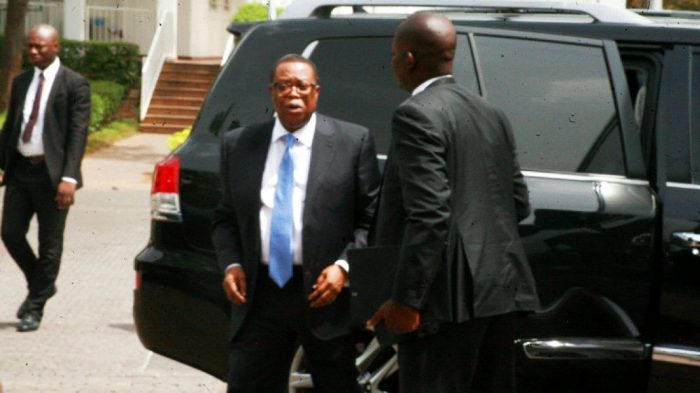
As a measure of fighting corruption and discouraging prospective public funds looters, the release by the federal government of a list of alleged looters of the country’s treasury is to be appreciated even if controversial. The core issue however is: what happens next after the list? Releasing a list of supposed corrupt public officials is not an end, but a means to an end, as that act alone cannot bring corruption, or stealing of public funds to a close.
What the federal government should henceforth emphasise is to ensure that its machinery of fighting corruption is sharpened, such that all suspects are thoroughly investigated and diligently prosecuted. Only then can the courts be in a position to invoke the law against culprits. These are what will ensure justice for the state, without which the anti-corruption campaign will continue to be a mirage.
Notably, in the recent past, many people accused of corruption had been discharged on account of lack of evidence to sustain the charges. It is no use for the presidency to blame the judiciary as its obstacle in fighting corruption simply because the courts are not convicting accused persons. The executive arm of government should appreciate that the courts have a sacred duty to administer justice, not just to the state, but also to the accused persons. The courts cannot, and should not convict people on account of public hype and official grandstanding, but by the weight of evidence adduced before them by the prosecution.
Besides, notwithstanding the assurance by Information Minister Alhaji Lai Mohammed that the list released was only a tip of the iceberg and that more names would be revealed in due course, Nigerians know the depth of corruption in the society and cannot be too impressed with what appears to be a token attempt at stemming it.
First, many corrupt Nigerians, including many of those named, are walking freely in and out of the country enjoying their loot, while the anti-corruption agencies continue to relish their ‘investigation’. It does appear in many instances that corruption investigations are endless, raising concern as to government’s avowed seriousness in fighting the scourge. After all, justice delayed is justice denied; and it is a grave dereliction of duty for government to allow looters enjoy and distribute their loot years before they are apprehended or brought to justice.
An additional concern to the public is whether the campaign against corruption is not one-sided, tilting against members of the opposition and those who allegedly stole prior to the advent of the Muhammadu Buhari current administration. Many conscientious citizens have raised the poser not necessarily to politicise government’s action, but to draw attention to a seeming deep flaw in the anti-graft campaign.
As government seeks, through its naming exercise, to renew official onslaught on corruption, it will be necessary to reassure Nigerians that there are indeed no sacred cows in its pursuit of the exercise. This is an opportunity for government to explain its role in the reinstatement and promotion of former Chairman of Pension Reform Task Team, Abdulrasheed Maina to the federal public service, after he had earlier been declared wanted by the Economic and Financial Crimes Commission (EFCC) for alleged fraud.
Similarly, government is yet to assuage public concern that corruption allegations against some of the president’s appointees are not being swept under the carpet. The officers include former Secretary to the Government of the Federation (SGF), David Lawal Babachir who was investigated on how his office spent more than N12 billion allocated for the rehabilitation of internally displaced persons (IDPs) in the North East.
Also, former Director General of National Intelligence Agency (NIA), Ambassador Ayo Oke who was indicted in connection with the 43.4m US dollars, 27, 800 Pounds and N23.2m uncovered at the seventh floor of a four-bedroom apartment at Osborne Towers, located at 16 Osborne Road, Ikoyi Lagos by the EFCC on April 12, this year. And the Executive Secretary of National Health Insurance Scheme (NHIS) Professor Usman Yusuf, earlier suspended by the Minister of Health to facilitate investigation of his alleged involvement in the embezzlement of N91 million, who was reinstated to his office reportedly on the directive of President Muhammadu Buhari.
There is dire need for government to divest anti-corruption campaign from politics, strengthen anti-graft institutions, making it independent and efficient; and imbibe the political will to extend the dragnet to all corrupt officials no matter their political affiliation.
END

Be the first to comment